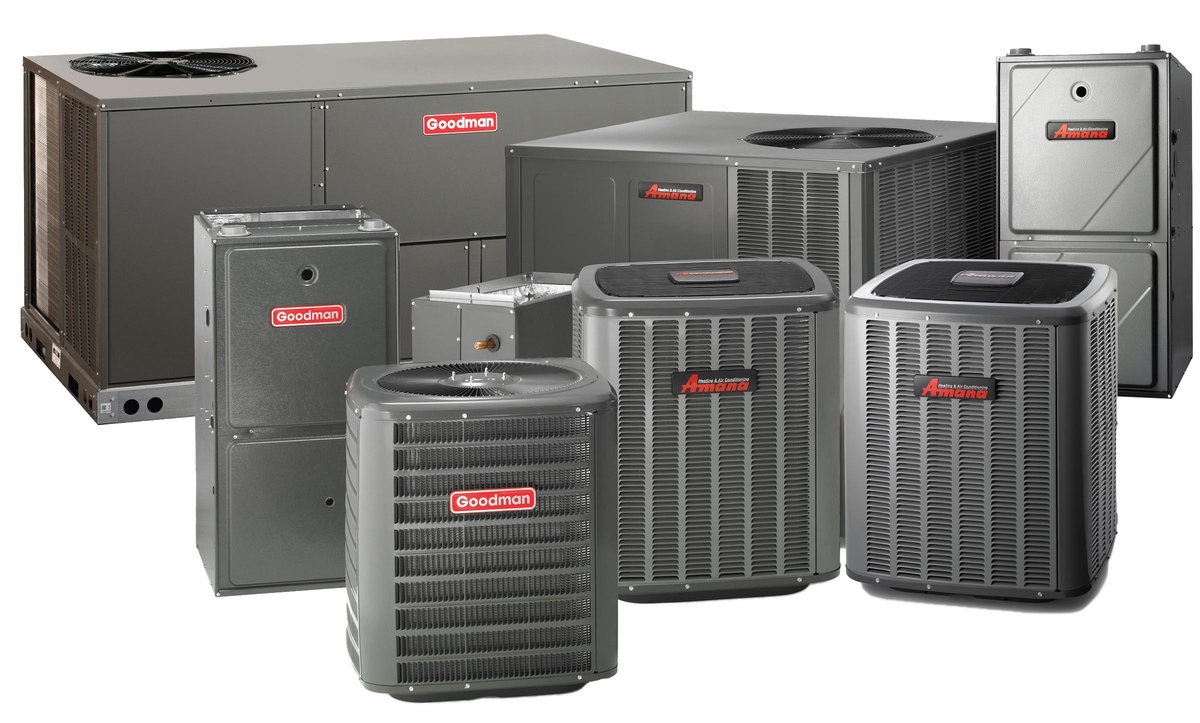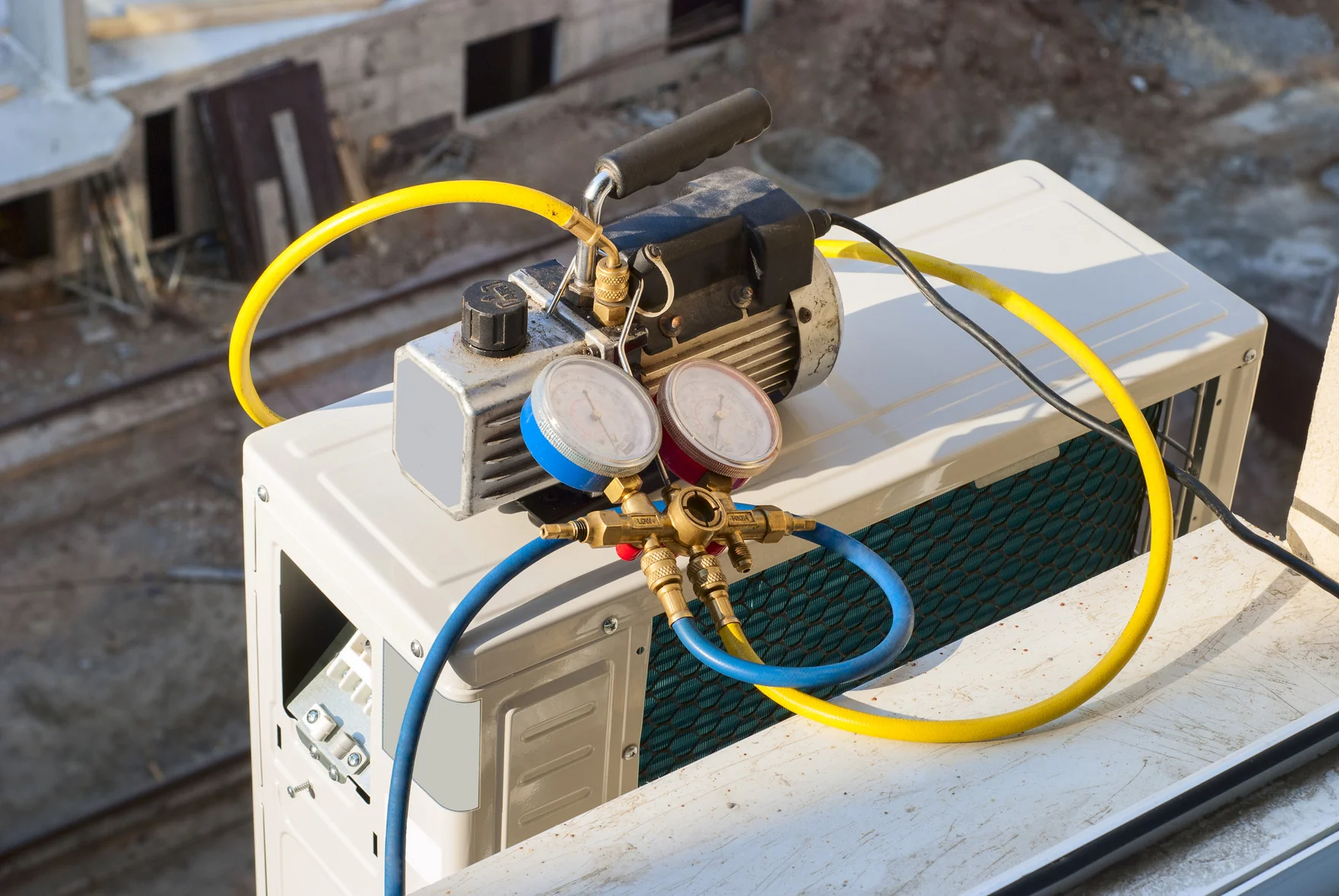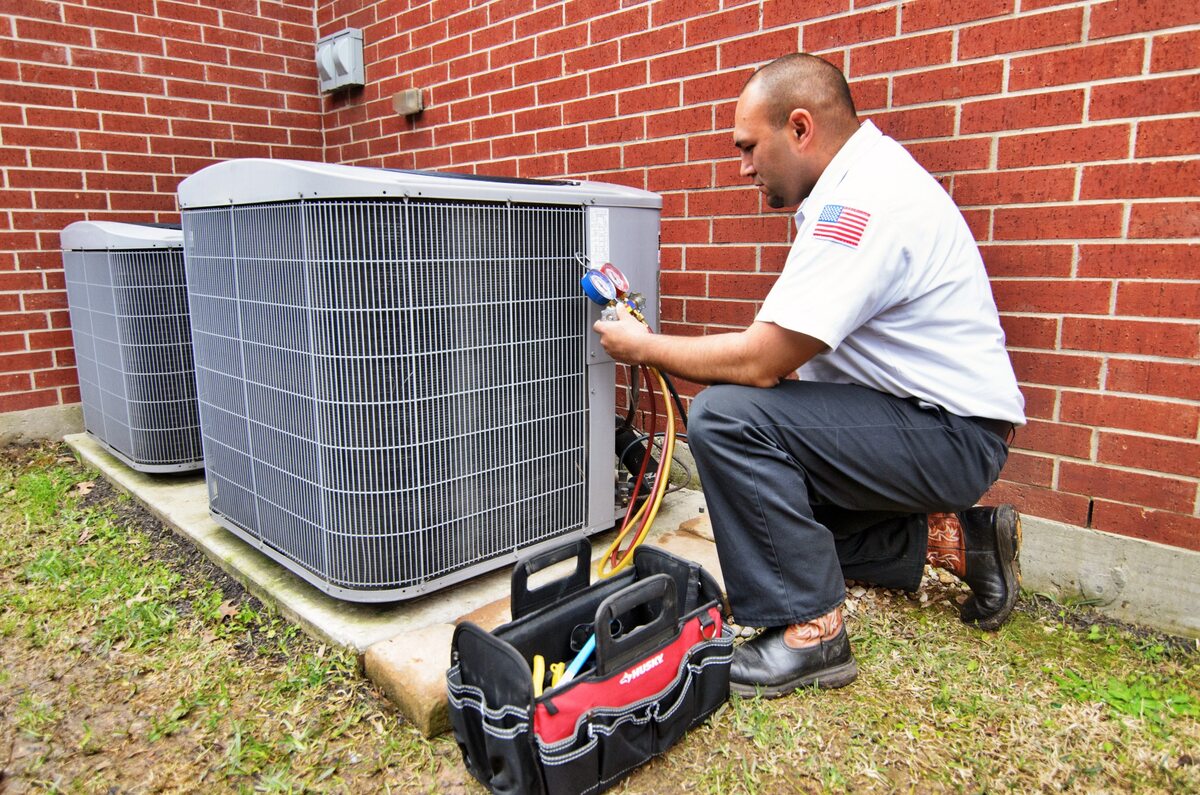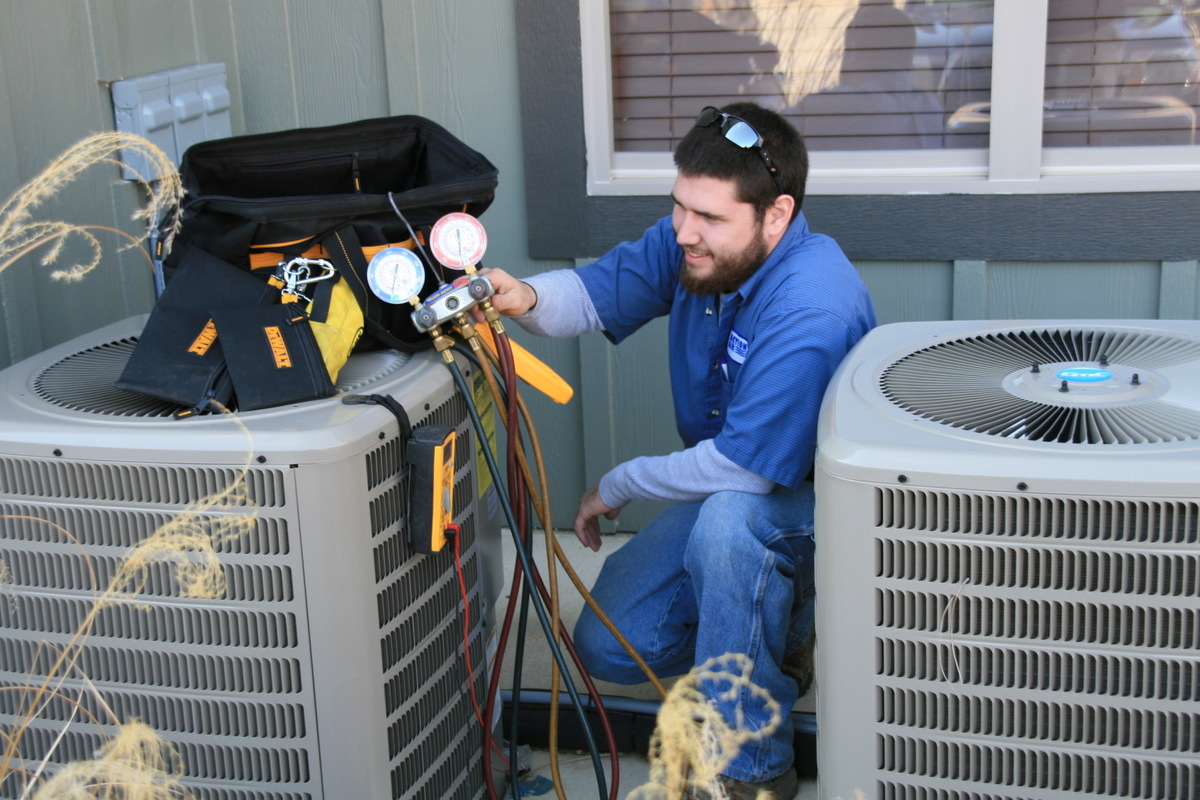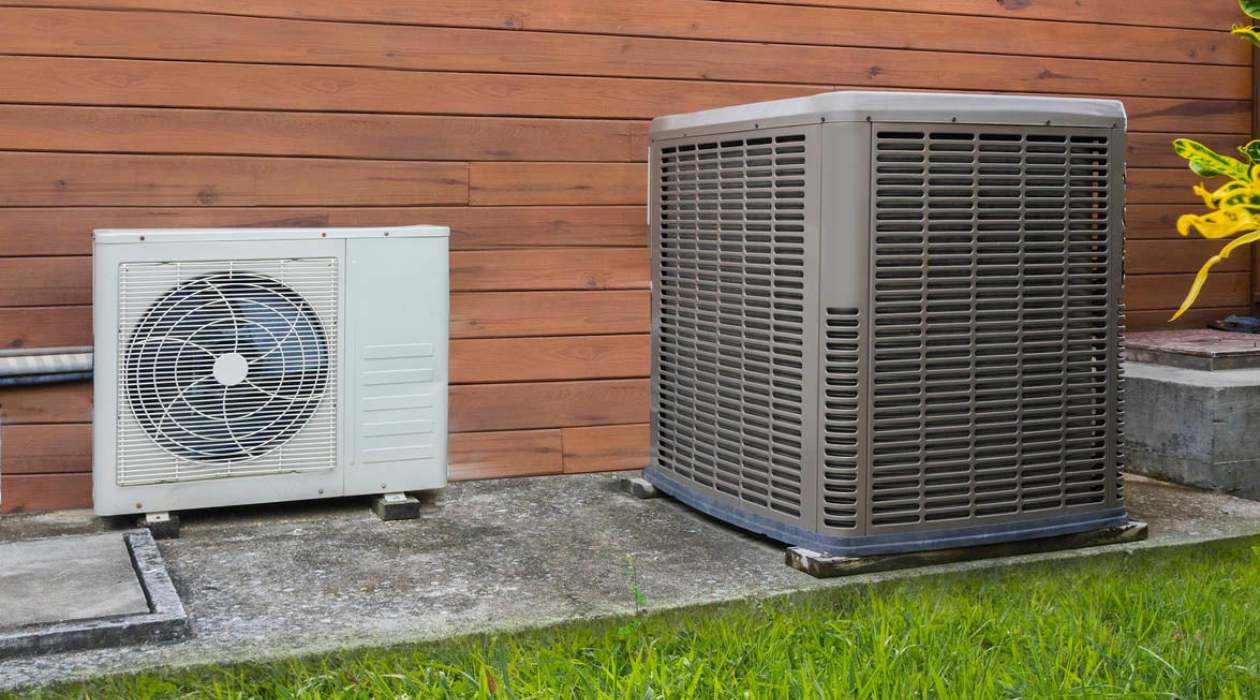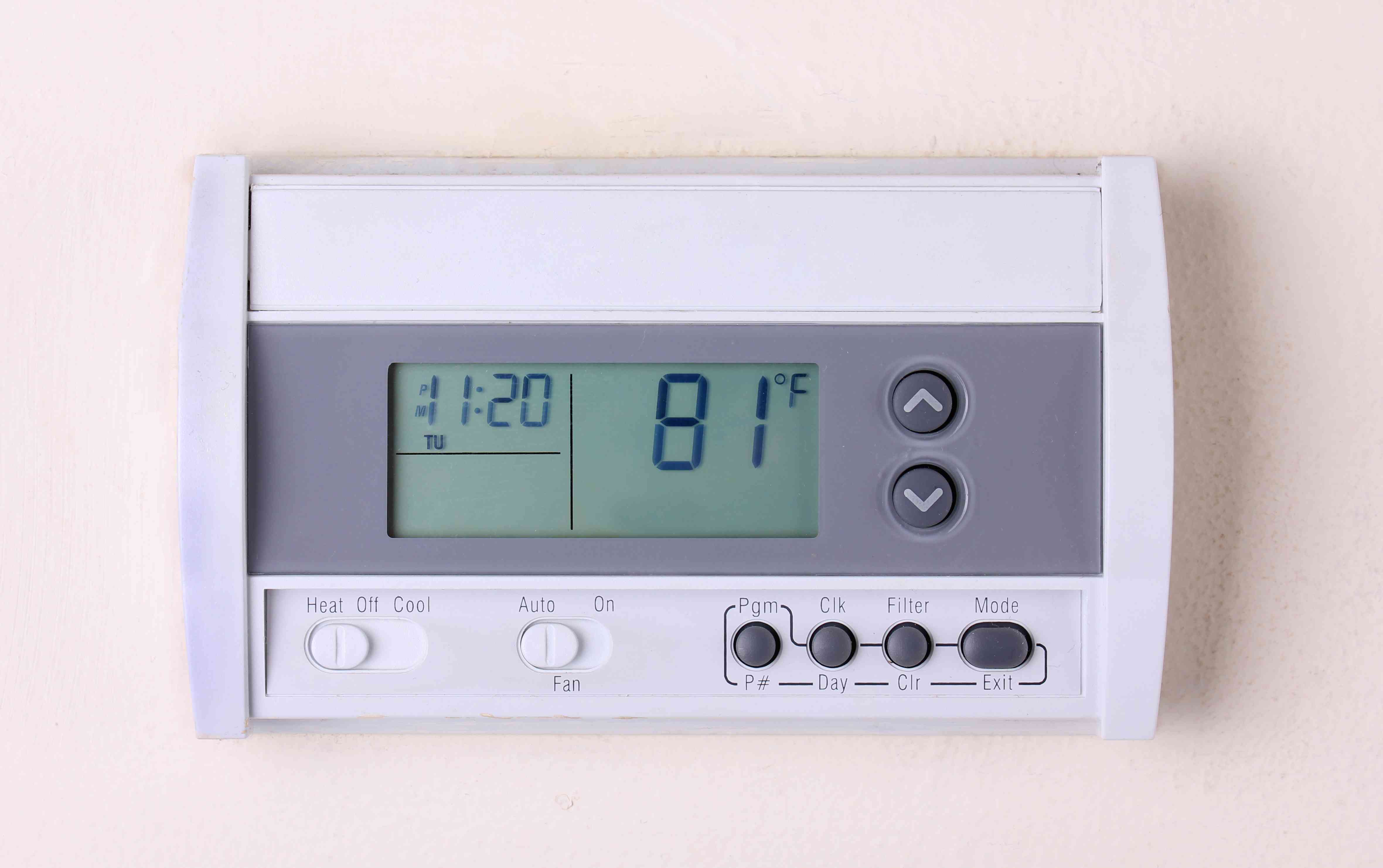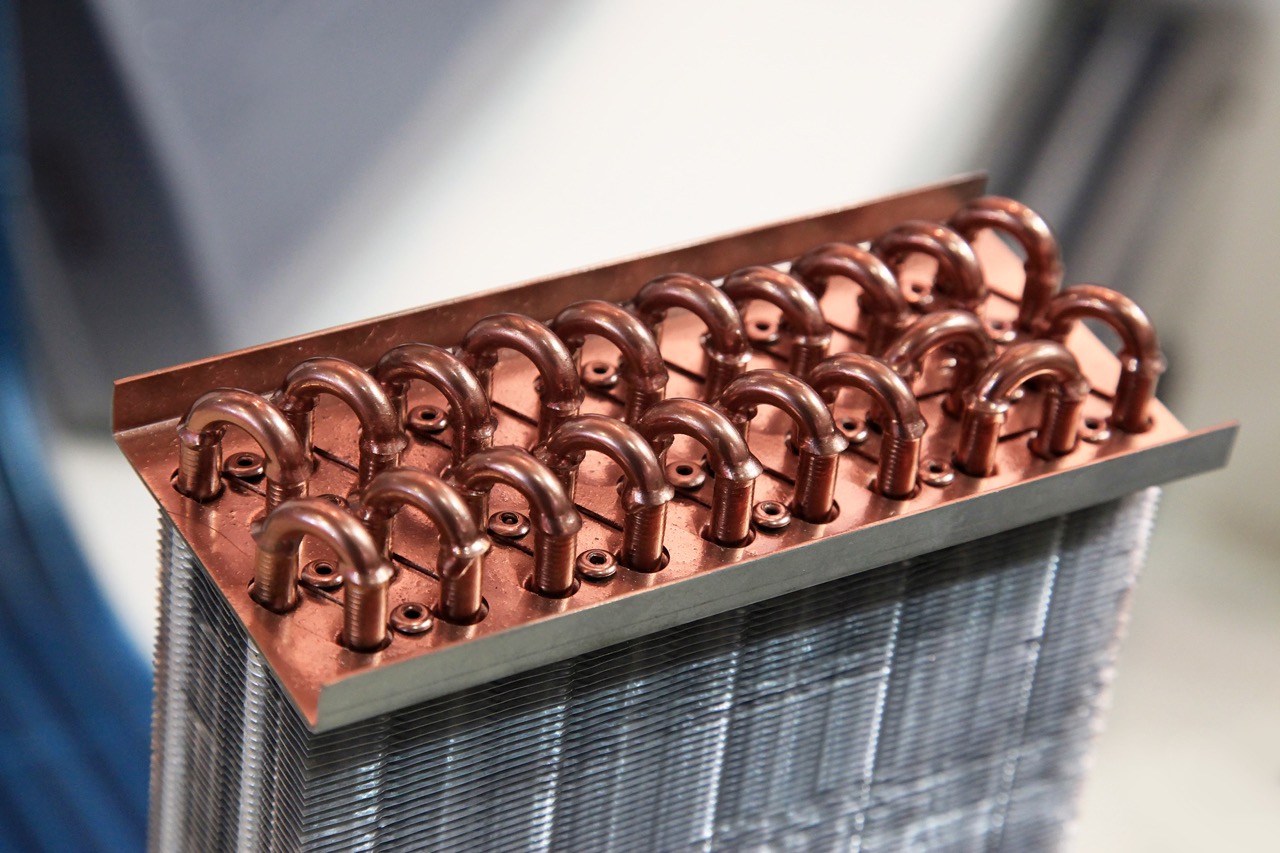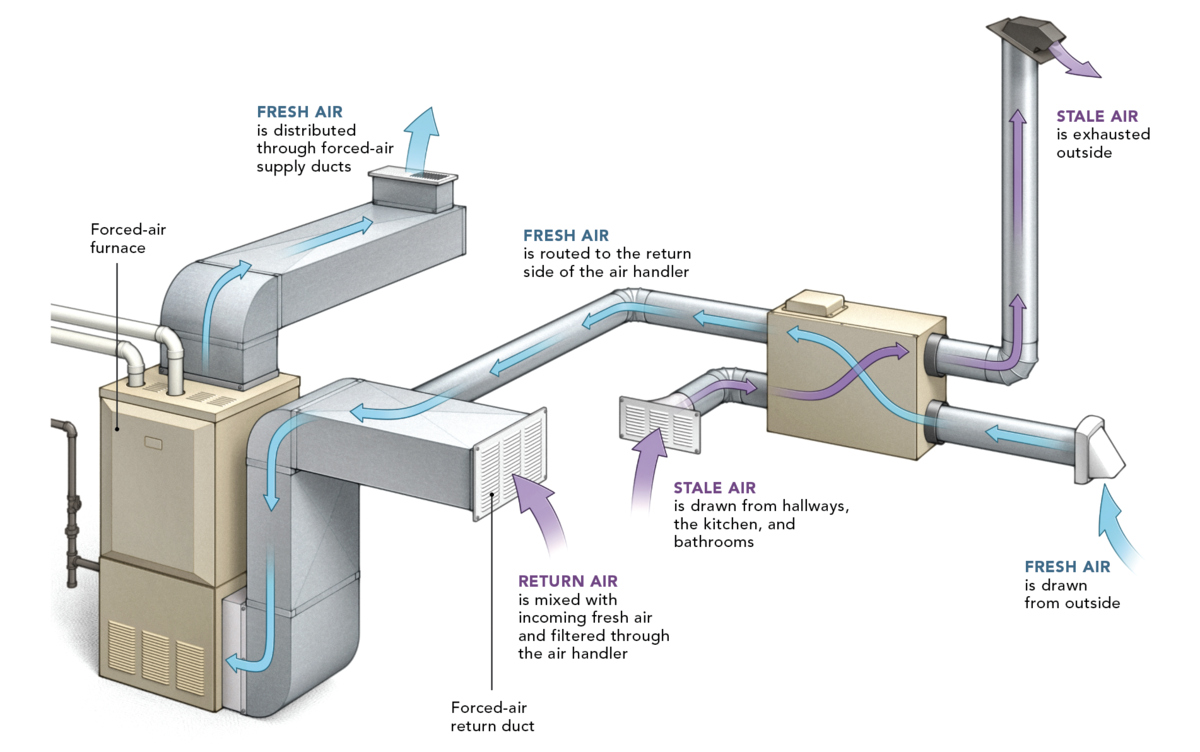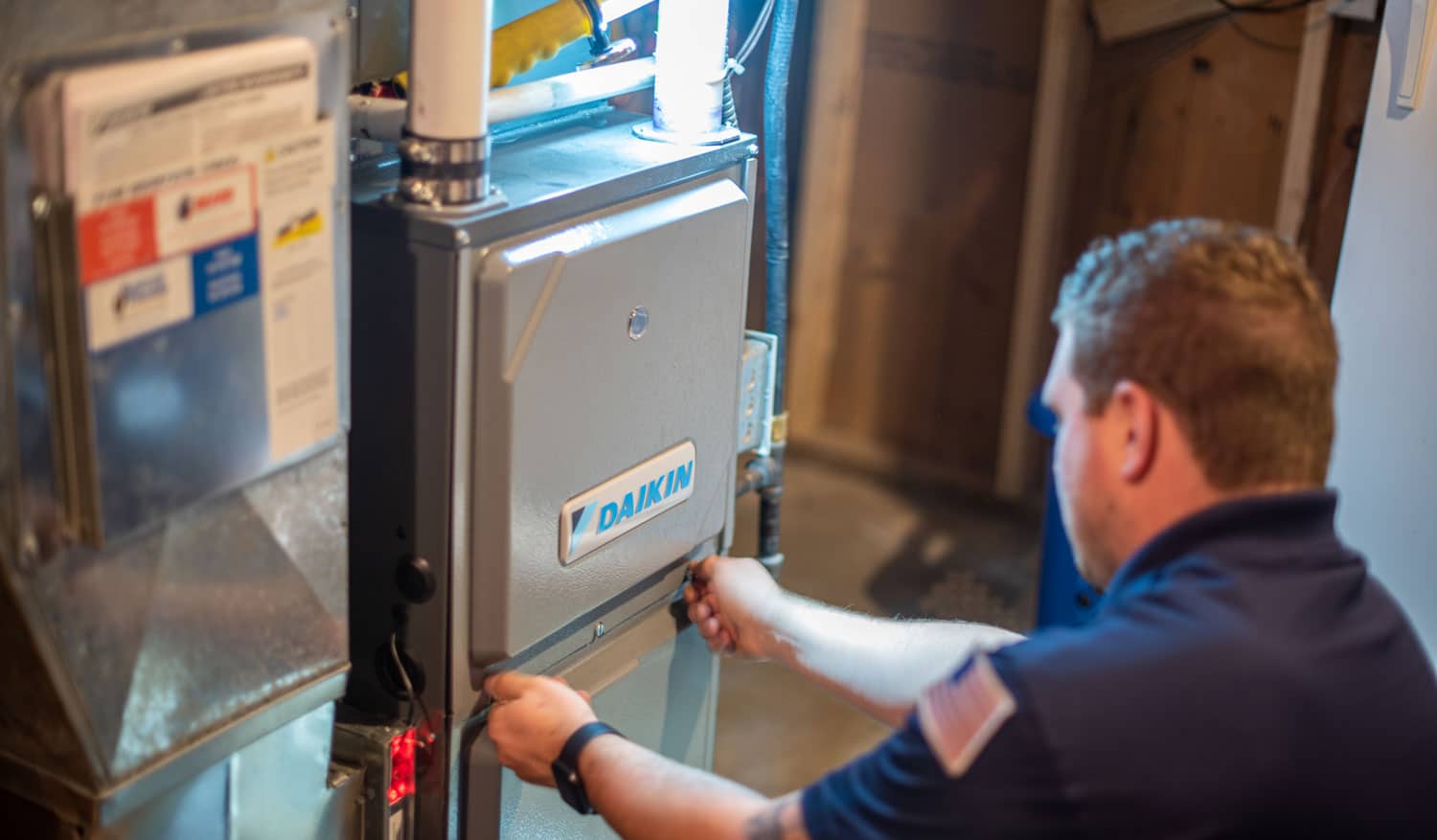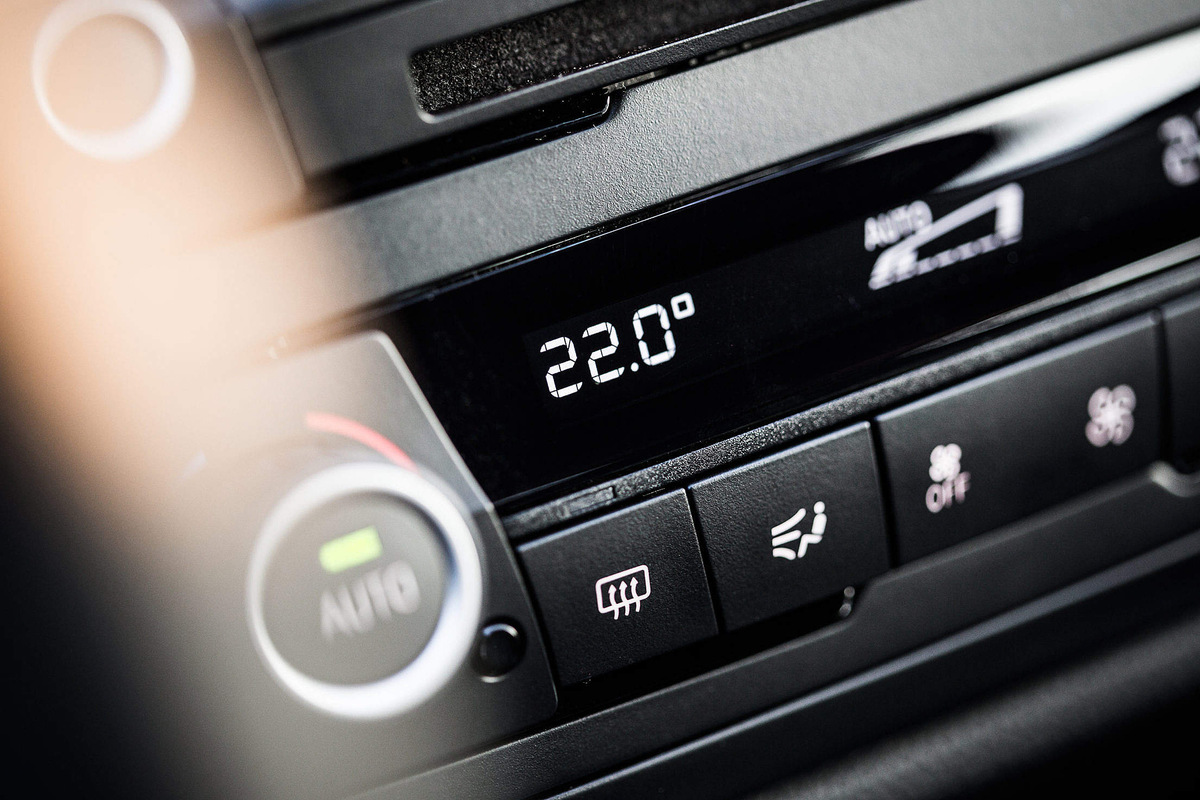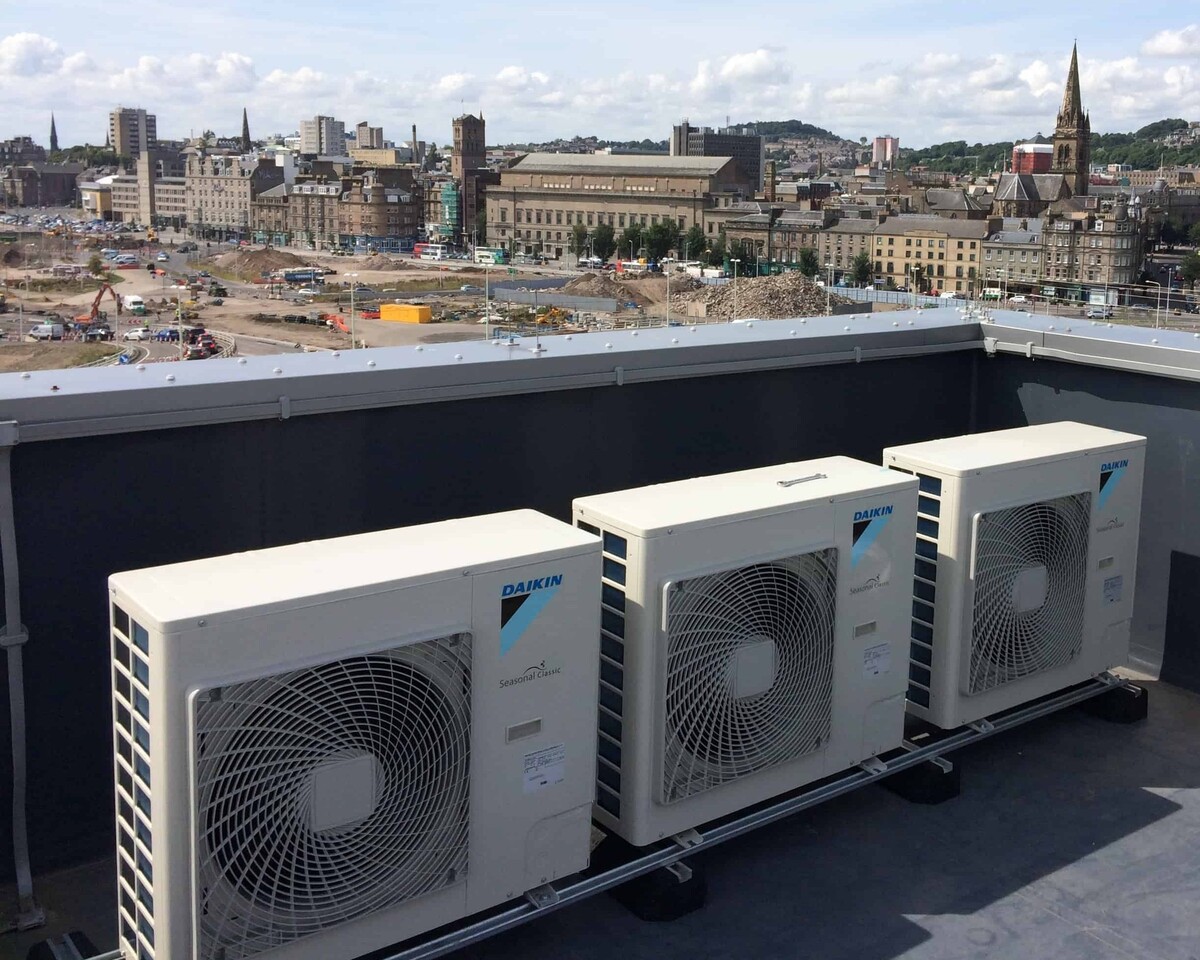Home>Home Maintenance>What Is A Heat Pump Air Conditioning System
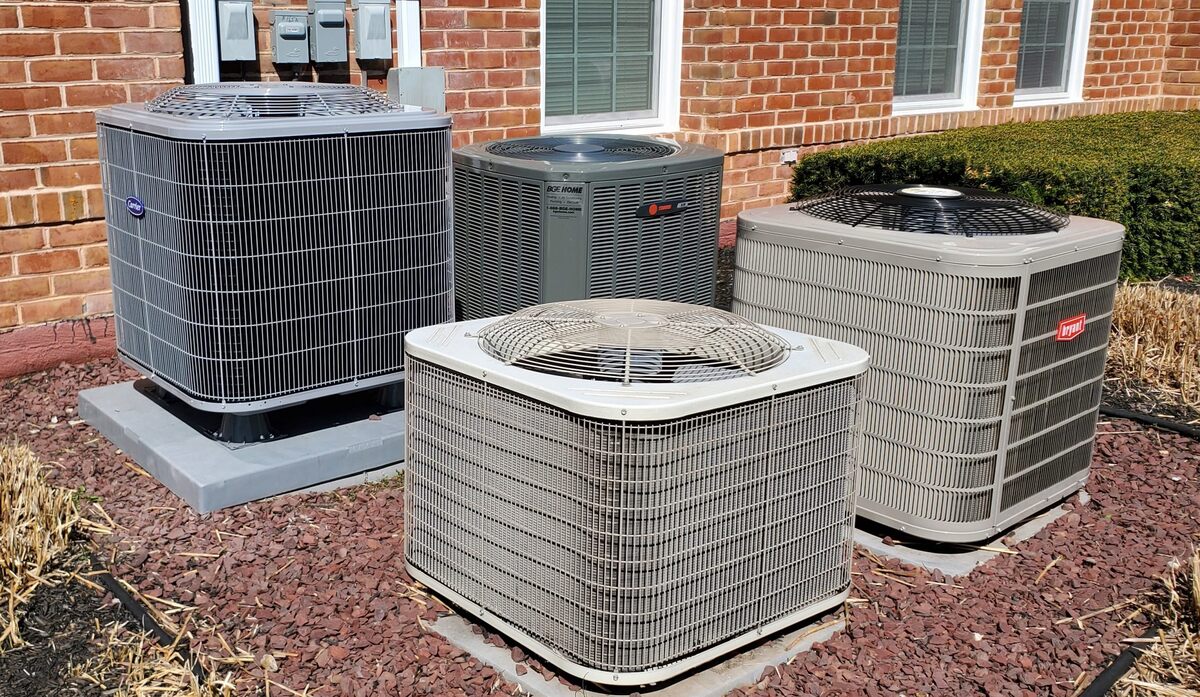

Home Maintenance
What Is A Heat Pump Air Conditioning System
Modified: October 18, 2024
Learn about the benefits of a heat pump air conditioning system for your home maintenance. Save energy and stay comfortable all year round.
(Many of the links in this article redirect to a specific reviewed product. Your purchase of these products through affiliate links helps to generate commission for Storables.com, at no extra cost. Learn more)
Introduction
When it comes to maintaining the ideal temperature in your home, having an efficient and effective air conditioning system is crucial. One popular option that has gained significant popularity in recent years is the heat pump air conditioning system. Unlike traditional air conditioning systems that solely rely on electricity to cool the air, heat pump systems utilize a unique process that not only cools the air but also provides heating capabilities.
So, what exactly is a heat pump air conditioning system? Simply put, it is a system that uses refrigeration technology to transfer heat from one place to another. During warmer months, it extracts heat from the indoor air and transfers it outside, effectively cooling the room. In colder months, it reverses this process and extracts heat from the outdoor air (even in low temperatures) and transfers it inside, providing warmth to your home.
One of the primary advantages of a heat pump air conditioning system is its versatility. It can both cool and heat your home, eliminating the need for separate cooling and heating systems. Not only does this save you space, but it also reduces installation and maintenance costs. Additionally, heat pump systems are known for their energy efficiency, making them an environmentally friendly and cost-effective choice for homeowners.
In this comprehensive guide, we will delve deeper into how heat pump air conditioning systems work, the different types available, the pros and cons of using them, installation and maintenance considerations, energy efficiency and cost savings, as well as their environmental impact. By the end of this article, you will have a thorough understanding of heat pump air conditioning systems and be well-equipped to make an informed decision for your home.
Key Takeaways:
- Stay comfortable year-round with a heat pump air conditioning system that efficiently cools in summer and heats in winter, saving space and reducing costs.
- Harness the power of heat pump technology to save energy, lower utility bills, and reduce your carbon footprint while enjoying a comfortable home environment.
Read more: What Is A Hydro Air Heating System
How Does a Heat Pump Air Conditioning System Work?
Understanding the inner workings of a heat pump air conditioning system is key to appreciating its efficiency and functionality. These systems operate based on the principles of refrigeration and heat transfer. Let’s break down the process step by step:
- Refrigerant Circulation: The system starts by circulating a refrigerant, a special chemical compound, through a closed loop system. The refrigerant plays a crucial role in absorbing and releasing heat during the cooling and heating processes.
- Cooling Mode: During the cooling mode, the heat pump uses the refrigerant to extract heat from the indoor air. The warm indoor air is drawn into the system through a vent, and the refrigerant absorbs the heat from the air, transforming it into a cool, dehumidified state.
- Reversing Valve: Once the heat from the air is absorbed, the refrigerant is pressurized, increasing its temperature. At this stage, the reversing valve comes into play. It reverses the flow of the refrigerant, allowing it to release the absorbed heat to the outside environment.
- Heating Mode: During the heating mode, the heat pump reverses the process. Instead of extracting heat from the indoor air, it extracts heat from the outdoor air. Even in low temperatures, there is still heat energy present in the air, and the heat pump can efficiently capture and transfer it indoors.
- Distribution System: Once the heat is transferred indoors, it goes through a distribution system, which could be a forced-air system or a radiant heating system. The heat pump can distribute the warmed air through air ducts or release it through floor or wall-mounted heating elements.
It is important to note that heat pumps are most efficient in moderate climates where the temperature doesn’t drop too low. In extremely cold climates, supplemental heating may be required to maintain comfortable temperatures.
The ability of a heat pump air conditioning system to operate in both cooling and heating modes makes it highly versatile and cost-effective. With proper installation and regular maintenance, these systems can provide efficient year-round comfort for your home, keeping you cool in the summer and warm during colder months.
Now that we’ve explored the workings of a heat pump air conditioning system, let’s delve into the different types of systems available to homeowners.
Types of Heat Pump Air Conditioning Systems
Heat pump air conditioning systems come in various types, each designed to suit different needs and preferences. Let’s take a closer look at the most common types of heat pump systems:
- Air Source Heat Pumps: Air source heat pumps are the most commonly used type of heat pump system. They extract heat from the outdoor air and transfer it indoors to heat your home. These systems operate efficiently in moderate climates but may require supplemental heating in colder regions. Air source heat pumps are available in both ducted and ductless options, offering flexibility in installation.
- Ground Source Heat Pumps: Ground source heat pumps, also known as geothermal heat pumps, utilize the stable temperature of the earth to extract heat. They consist of buried pipes, known as ground loops, that circulate a refrigerant to absorb or release heat from the ground. Ground source heat pumps are highly efficient and can provide consistent heating and cooling year-round. However, they typically have higher upfront installation costs due to the excavation required for the ground loop system.
- Water Source Heat Pumps: Water source heat pumps extract heat from a water source, such as a lake, pond, or well, to provide heating and cooling. These systems are particularly efficient in areas where a reliable water source is available. They offer similar benefits to ground source heat pumps, but instead of ground loops, they use water loops for heat transfer.
- Hybrid Heat Pumps: Hybrid heat pumps combine a traditional heating system, such as a gas or oil furnace, with an air source heat pump. These systems automatically switch between the two heat sources based on the outdoor temperature, optimizing energy efficiency. Hybrid heat pumps are ideal for regions with extreme temperature variations, as they can seamlessly provide efficient heating and cooling as needed.
Choosing the right type of heat pump air conditioning system depends on factors such as climate, available space, budget, and personal preferences. Consulting with a professional HVAC technician can help determine the most suitable option for your specific needs.
Now that we’ve explored the different types of heat pump systems, let’s evaluate the pros and cons of using these systems in your home.
Pros and Cons of Heat Pump Air Conditioning Systems
Heat pump air conditioning systems offer several advantages that make them a popular choice among homeowners. However, like any other system, they also have their limitations. Let’s examine the pros and cons of heat pump systems:
Pros:
- Energy Efficiency: Heat pump systems are known for their energy efficiency. They can produce more heat or cooling energy than the electrical energy they consume, making them highly efficient and cost-effective in the long run.
- Year-Round Comfort: Heat pump systems can both cool and heat your home. They eliminate the need for separate cooling and heating systems, providing year-round comfort with a single system.
- Environmentally Friendly: Heat pumps are more environmentally friendly compared to traditional heating and cooling systems. They consume less energy and produce fewer greenhouse gas emissions, helping to reduce your carbon footprint.
- Lower Operating Costs: Due to their energy efficiency, heat pump systems can help lower your monthly utility bills. Though they may have a higher upfront cost, the savings in operation costs over time can outweigh the initial investment.
- Improved Indoor Air Quality: Heat pump systems include air filtration components that help improve indoor air quality by reducing dust, allergens, and other pollutants. This can benefit individuals with allergies or respiratory conditions.
Read more: How To Flush Air Conditioning System
Cons:
- Limited Heating Capacity in Cold Climates: Air source heat pumps may have reduced heating capacity in extremely cold climates. In such cases, supplemental heating may be required to maintain optimal comfort.
- Higher Installation Costs: Ground source and water source heat pump systems typically have higher installation costs compared to air source heat pumps. The excavation or loop installation process contributes to a higher upfront investment.
- Dependencies on Outdoor Conditions: The efficiency of heat pump systems relies on outdoor conditions, particularly air or water temperature. Extreme temperatures or fluctuations can affect the system’s performance and efficiency.
- Potential Noise: Heat pump systems, especially older models, may produce some noise during operation. However, modern units are designed with noise reduction features to minimize this issue.
- Regular Maintenance Required: Like any HVAC system, heat pumps require regular maintenance to ensure optimal performance and longevity. Filters need to be cleaned or replaced, refrigerant levels must be checked, and other maintenance tasks should be performed as recommended by the manufacturer.
Considering the pros and cons mentioned above can help you make an informed decision about whether a heat pump air conditioning system is the right choice for your home. Now, let’s move on to the installation and maintenance considerations for these systems.
Installation and Maintenance of Heat Pump Air Conditioning Systems
Proper installation and regular maintenance are essential for the efficient operation and longevity of heat pump air conditioning systems. Let’s explore the key considerations for installation and ongoing maintenance:
Installation:
It is highly recommended to hire a professional HVAC technician with experience in heat pump installations. Improper installation can result in reduced efficiency, frequent breakdowns, and even potential safety hazards. Here are some important installation considerations:
- Sizing: A properly sized heat pump is crucial for optimal performance. The technician will assess the heating and cooling needs of your home and recommend the appropriate size of heat pump to ensure efficient operation.
- Location: The outdoor unit of the heat pump should be placed in a well-ventilated area with sufficient clearance for airflow. The indoor unit should be installed in a central location for effective distribution of conditioned air.
- Ductwork: If you opt for a ducted heat pump system, the existing ductwork should be inspected for any leaks or inefficiencies. Proper sealing and insulation of the ducts will help maintain energy efficiency.
- Electrical Requirements: The heat pump system will require specific electrical requirements, including voltage, amperage, and proper grounding. Ensure that the electrical work complies with local building codes and is performed by a licensed electrician.
Maintenance:
Maintaining your heat pump system is essential to keep it running smoothly and efficiently. Regular maintenance can also extend the lifespan of the system. Here are some maintenance tasks to consider:
- Clean or Replace Filters: Dirty filters can restrict airflow and reduce the system’s efficiency. Clean or replace filters regularly, according to the manufacturer’s recommendations.
- Monitor the Outdoor Unit: Keep the outdoor unit free from debris, such as leaves, branches, and dirt. Inspect it regularly and remove any obstructions that could hinder airflow.
- Check Refrigerant Levels: Insufficient or excessive refrigerant can affect the heat pump’s performance. Have a professional technician check and adjust the refrigerant levels as needed.
- Inspect and Clean Coils: Over time, the outdoor and indoor coils may accumulate dirt and dust, reducing their efficiency. Regularly inspect and clean the coils to ensure optimal heat transfer.
- Schedule Professional Maintenance: It is recommended to have an annual maintenance visit by a professional technician. They can perform a thorough inspection, address any issues, and tune up the system for optimal performance.
By following proper installation procedures and staying on top of regular maintenance tasks, you can ensure that your heat pump air conditioning system operates efficiently and provides reliable comfort for years to come.
Now, let’s explore the energy efficiency and cost savings associated with heat pump air conditioning systems.
Energy Efficiency and Cost Savings with Heat Pump Air Conditioning Systems
Energy efficiency and cost savings are significant advantages of heat pump air conditioning systems. These systems offer impressive efficiency ratings, which can translate into reduced energy consumption and lower utility bills. Let’s delve into how heat pump systems achieve energy efficiency and provide cost savings:
Energy Efficiency:
Heat pump systems achieve energy efficiency by leveraging the principles of heat transfer and refrigeration technology. Here are some key factors that contribute to their energy efficiency:
- Heat Exchange: Heat pumps transfer heat rather than generate it, making them more energy-efficient than traditional heating systems. By extracting heat from the air, ground, or water, they consume less energy to achieve the desired indoor temperature.
- Improved Technology: Advancements in heat pump technology have led to more efficient compressor systems and better heat transfer mechanisms. This allows heat pumps to deliver more heating or cooling per unit of energy consumed.
- Zoned Heating and Cooling: Heat pump systems often come with zoning capabilities, allowing you to heat or cool specific areas of your home independently. By only conditioning occupied spaces, you can save energy by avoiding heating or cooling unused areas.
- Programmable Thermostats: Integrating a programmable thermostat with your heat pump system enables you to schedule temperature adjustments based on your occupancy patterns. This helps optimize energy usage and avoid unnecessary heating or cooling when you’re away from home.
Cost Savings:
Heat pump air conditioning systems can result in significant cost savings over time. While the upfront costs may be higher compared to traditional AC systems, the following factors contribute to long-term savings:
- Lower Energy Bills: Heat pumps consume less energy to achieve the same level of heating or cooling as traditional systems, resulting in reduced energy bills. This can provide substantial savings, particularly in areas with high electricity rates.
- Reduced Maintenance Costs: Heat pump systems typically require less maintenance compared to other systems. Regular filter cleaning or replacement and annual professional check-ups are usually sufficient. This can help reduce ongoing maintenance costs over the life of the system.
- Long Lifespan: With proper installation and maintenance, heat pump systems can last for 15 to 20 years or even longer. Their durability can save you money by avoiding the need for frequent system replacements.
- Rebates and Incentives: Many regions offer rebates and incentives for installing energy-efficient heat pump systems. These financial incentives can help offset the initial investment, providing additional cost savings.
It is important to note that the actual energy savings and cost efficiency of a heat pump system will depend on various factors, including the size and efficiency of the system, local climate, insulation levels in your home, and your usage patterns. Consulting with a professional HVAC technician can help you assess the potential savings specific to your situation.
Now, let’s explore the environmental impact of heat pump air conditioning systems.
Environmental Impact of Heat Pump Air Conditioning Systems
Heat pump air conditioning systems have a positive environmental impact compared to traditional heating and cooling systems. These systems operate efficiently and utilize renewable energy sources, resulting in reduced greenhouse gas emissions and a smaller carbon footprint. Let’s delve into the environmental benefits of heat pump systems:
Reduced Greenhouse Gas Emissions:
Heat pump systems contribute to the reduction of greenhouse gas emissions, primarily through the electricity consumption they require. By relying on electricity rather than burning fossil fuels, they decrease the direct emissions associated with traditional heating systems. Additionally, as the power generation industry shifts towards cleaner energy sources, the indirect emissions related to electricity production decrease, further enhancing the environmental benefits of heat pump systems.
Energy Efficiency:
Heat pump systems are highly energy-efficient, which directly translates to lower energy consumption and reduced environmental impact. These systems can produce several units of heating or cooling for every unit of electrical energy they consume. By utilizing renewable energy from the air, ground, or water, heat pumps maximize the use of available natural resources without significant waste.
Alternative Refrigerants:
Modern heat pump systems use environmentally friendly refrigerants, such as hydrofluorocarbons (HFCs) with low global warming potential (GWP). These refrigerants have significantly less impact on the ozone layer and contribute less to climate change compared to older refrigerant compounds.
Renewable Energy Integration:
Heat pump systems can be integrated with renewable energy sources, such as solar panels or wind turbines, to further reduce their environmental impact. By harnessing clean, renewable energy, the reliance on conventional electricity sources can be minimized or eliminated entirely, making the heat pump system even more sustainable.
Read more: What Is Air Conditioning
Reduced Resource Depletion:
Heat pump systems do not rely on the combustion of fossil fuels, reducing the demand for natural gas, oil, or coal. By reducing the extraction and consumption of these resources, the pressure on natural ecosystems and habitats is decreased, promoting conservation and sustainability.
However, it is important to consider that heat pump systems still require electricity to operate. The environmental benefits are maximized when the electricity is derived from renewable sources. If the electricity grid in your area relies heavily on fossil fuel-based energy, the indirect emissions associated with your heat pump system may be higher. It is recommended to explore options for renewable energy, such as purchasing green power or installing your own renewable energy system, to further enhance the environmental impact of your heat pump system.
By choosing a heat pump air conditioning system, you are making a conscious decision to minimize your environmental impact and contribute to a more sustainable future.
Now, let’s conclude our comprehensive guide to heat pump air conditioning systems.
Conclusion
Heat pump air conditioning systems offer a versatile, energy-efficient, and eco-friendly solution for maintaining optimal comfort in your home. With the ability to both cool and heat your living spaces, these systems eliminate the need for separate cooling and heating units, saving space and reducing installation and maintenance costs.
By leveraging refrigeration technology and heat transfer principles, heat pump systems efficiently extract heat from the air, ground, or water, providing year-round comfort regardless of the external temperature. Their energy efficiency not only translates into lower utility bills but also contributes to the reduction of greenhouse gas emissions and a smaller carbon footprint.
When considering a heat pump system for your home, it’s important to evaluate the different types available, such as air source, ground source, water source, and hybrid options. Each type has its own advantages and considerations, and consulting with a professional HVAC technician can help determine the most suitable system for your specific needs.
Proper installation and regular maintenance are crucial to ensure the efficient operation and longevity of your heat pump system. Professional installation helps ensure correct sizing, appropriate location, and proper electrical requirements. Meanwhile, regular maintenance tasks such as filter cleaning or replacement, coil cleaning, and refrigerant level checks are essential to keep the system running smoothly.
Heat pump air conditioning systems deliver not only comfort but also cost savings over time. With lower energy consumption and reduced maintenance costs, these systems provide long-term financial benefits. Additionally, the environmentally friendly nature of heat pump systems contributes to the conservation of natural resources, reduced greenhouse gas emissions, and a more sustainable future.
By choosing a heat pump air conditioning system, you are making a sound investment in your home’s comfort, energy efficiency, and environmental impact. With proper installation, regular maintenance, and a commitment to sustainable energy sources, you can enjoy comfortable indoor temperatures while minimizing your carbon footprint.
Now that you’re equipped with a comprehensive understanding of heat pump air conditioning systems, it’s time to explore the options available and consider the best fit for your home. Stay cool in the summer, warm in the winter, and environmentally conscious all year round by harnessing the power of heat pump technology.
Frequently Asked Questions about What Is A Heat Pump Air Conditioning System
Was this page helpful?
At Storables.com, we guarantee accurate and reliable information. Our content, validated by Expert Board Contributors, is crafted following stringent Editorial Policies. We're committed to providing you with well-researched, expert-backed insights for all your informational needs.
